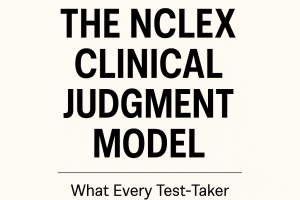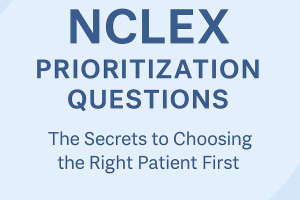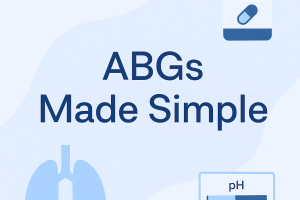UNDERSTANDING ANTI-HYPERTENSIVE MEDICATIONS AND NURSING IMPLICATIONS

Hypertension, or high blood pressure, is a common condition that often requires lifelong management. As nurses, understanding antihypertensive medications and their implications for patient care is essential. These medications play a critical role in controlling blood pressure, preventing complications, and improving patients’ overall quality of life. This guide will cover key classes of antihypertensive medications, their mechanisms of action, nursing considerations, and practical tips for ensuring effective patient education and safety.
1. Overview of Antihypertensive Medications
Antihypertensive medications are used to lower and control high blood pressure, helping to reduce the risk of cardiovascular complications such as stroke, heart attack, and kidney damage. These medications work through various mechanisms, and they are often prescribed based on the patient’s specific needs, underlying health conditions, and other medications.
2. Key Classes of Antihypertensive Medications
Understanding the major classes of antihypertensive drugs and their mechanisms of action is vital for nurses. Here are the primary categories:
• ACE Inhibitors (Angiotensin-Converting Enzyme Inhibitors)
ACE inhibitors prevent the formation of angiotensin II, a substance that narrows blood vessels and increases blood pressure. By blocking this pathway, ACE inhibitors reduce blood vessel constriction, lower blood pressure, and decrease the workload on the heart.
Examples: Enalapril, Lisinopril, Ramipril.
• ARBs (Angiotensin II Receptor Blockers)
ARBs work similarly to ACE inhibitors but block angiotensin II from binding to its receptors on blood vessels, leading to vasodilation and lower blood pressure.
Examples: Losartan, Valsartan, Irbesartan.
• Beta-Blockers
Beta-blockers reduce heart rate and the force of contraction, leading to lower blood pressure. They are often prescribed for patients with coexisting conditions like heart disease.
Examples: Metoprolol, Atenolol, Propranolol.
• Calcium Channel Blockers
These drugs prevent calcium from entering heart and blood vessel cells, leading to relaxed and dilated blood vessels. They are particularly effective for African American and elderly patients.
Examples: Amlodipine, Diltiazem, Verapamil.
• Diuretics
Often considered first-line therapy, diuretics help the body eliminate excess sodium and water, reducing blood volume and, in turn, blood pressure.
Examples: Hydrochlorothiazide, Furosemide, Spironolactone.
3. Nursing Implications for Antihypertensive Medications
When managing patients on antihypertensive medications, nurses should focus on monitoring, patient education, and understanding potential adverse effects.
• Patient Assessment and Monitoring
Regular monitoring of blood pressure, pulse rate, and overall cardiovascular health is essential to ensure the effectiveness of the medication. Additionally, patients should be assessed for symptoms of hypotension, such as dizziness or fainting, especially upon initiating therapy or adjusting doses.
• Managing Side Effects
Different classes of antihypertensives come with unique side effects. ACE inhibitors, for instance, may cause a dry cough, while beta-blockers can lead to fatigue and cold extremities. Educating patients on these potential effects and providing strategies to manage them is key to improving adherence.
• Patient Education and Lifestyle Counseling
Nurses play a crucial role in educating patients on lifestyle modifications that support medication effectiveness. This includes dietary advice (low sodium, high potassium), regular physical activity, and weight management. Patients should also understand the importance of adhering to their medication regimen, even if they feel well, as hypertension often lacks noticeable symptoms.
• Drug Interactions and Precautions
Antihypertensive medications may interact with other drugs, such as NSAIDs, which can reduce their effectiveness, or other blood pressure-lowering agents, which may increase the risk of hypotension. Nurses should review all medications, including over-the-counter drugs and herbal supplements, to avoid interactions and ensure safe administration.
4. Practical Tips for Nursing Practice
Here are some best practices when working with patients taking antihypertensive medications:
• Encourage Compliance with a Routine: Recommend taking medications at the same time each day, which can improve adherence and effectiveness. For patients taking diuretics, suggest morning dosing to prevent nighttime urination.
• Monitor Electrolytes: Diuretics, especially loop diuretics like Furosemide, can lead to electrolyte imbalances, particularly potassium. Regular lab tests are essential to monitor for potential hypokalemia or hyperkalemia.
• Promote Safe Position Changes: Orthostatic hypotension is common with antihypertensives, so advise patients to stand up slowly from sitting or lying positions to prevent dizziness and falls.
• Evaluate Kidney and Liver Function: Many antihypertensive drugs are processed through the kidneys or liver. Regular assessment of renal and hepatic function is important, especially in older adults or those with pre-existing conditions.
5. Sample NCLEX-Style Questions
Below are some practice questions to help reinforce your understanding of antihypertensive medications and nursing considerations.
Question 1: A nurse is providing discharge teaching for a patient who has been prescribed Lisinopril for hypertension. Which statement by the patient indicates a need for further education?
A. “I will stand up slowly to avoid feeling dizzy.”
B. “If I develop a dry cough, I will contact my healthcare provider.”
C. “I can take ibuprofen for headaches as needed.”
D. “I will take my medication at the same time every day.”
Answer: C. “I can take ibuprofen for headaches as needed.” Ibuprofen (an NSAID) can reduce the effectiveness of ACE inhibitors like Lisinopril and should be avoided unless approved by the healthcare provider.
Question 2: A nurse is caring for a patient receiving hydrochlorothiazide. What is the most important lab value to monitor with this medication?
A. Blood glucose
B. Potassium level
C. Hemoglobin level
D. Platelet count
Answer: B. Potassium level. Thiazide diuretics like hydrochlorothiazide can lead to hypokalemia, making potassium monitoring crucial.
Question 3: A patient prescribed Metoprolol reports fatigue and cold hands. What is the nurse’s best response?
A. “These symptoms are common and may decrease with time.”
B. “This is an allergic reaction, and you should stop the medication immediately.”
C. “Increase your salt intake to help with these symptoms.”
D. “Take the medication with a high-protein meal.”
Answer: A. “These symptoms are common and may decrease with time.” Fatigue and cold extremities are common side effects of beta-blockers and usually lessen as the body adjusts to the medication.
Conclusion
Understanding antihypertensive medications and their nursing implications is vital for providing effective, patient-centered care. With careful monitoring, patient education, and an awareness of potential side effects and interactions, nurses can play an essential role in helping patients manage hypertension safely. Familiarity with each class of antihypertensive medication empowers nurses to make well-informed decisions and provide accurate guidance, improving patients’ adherence and overall health outcomes






